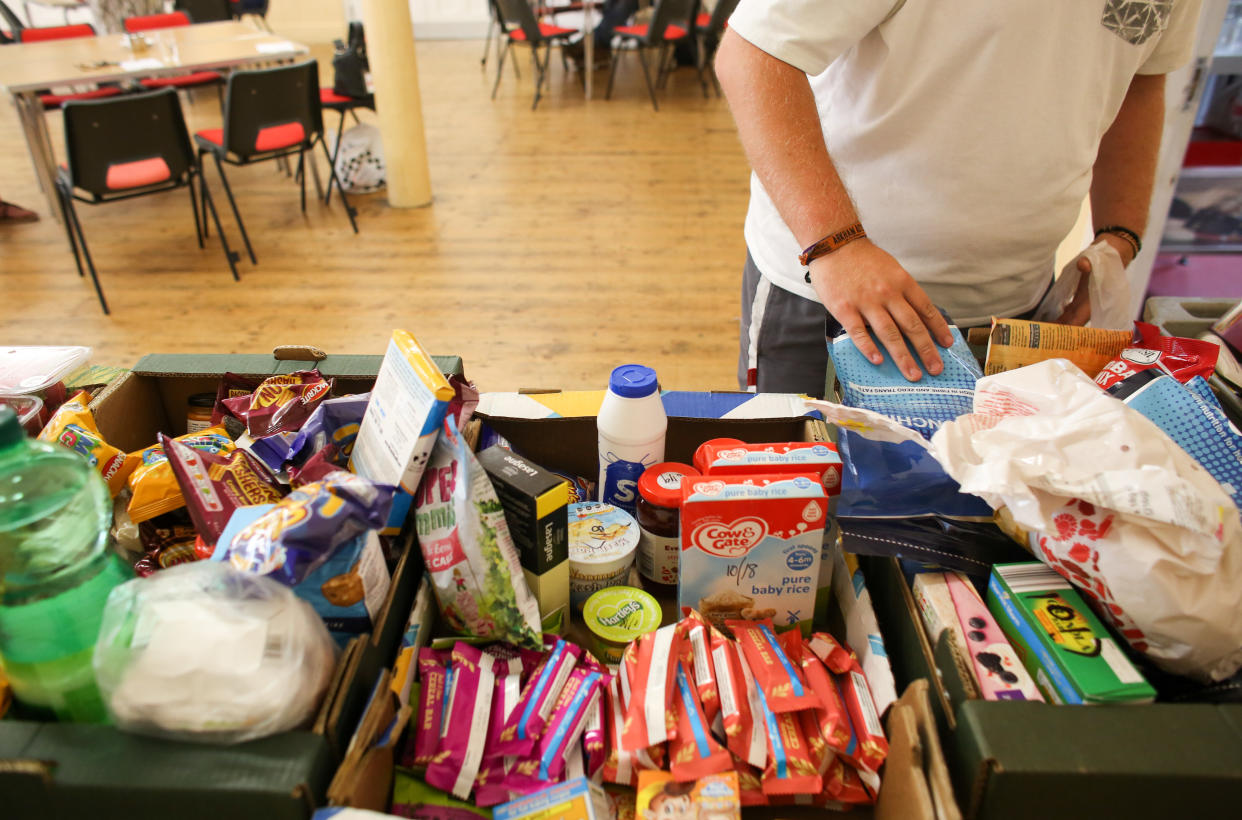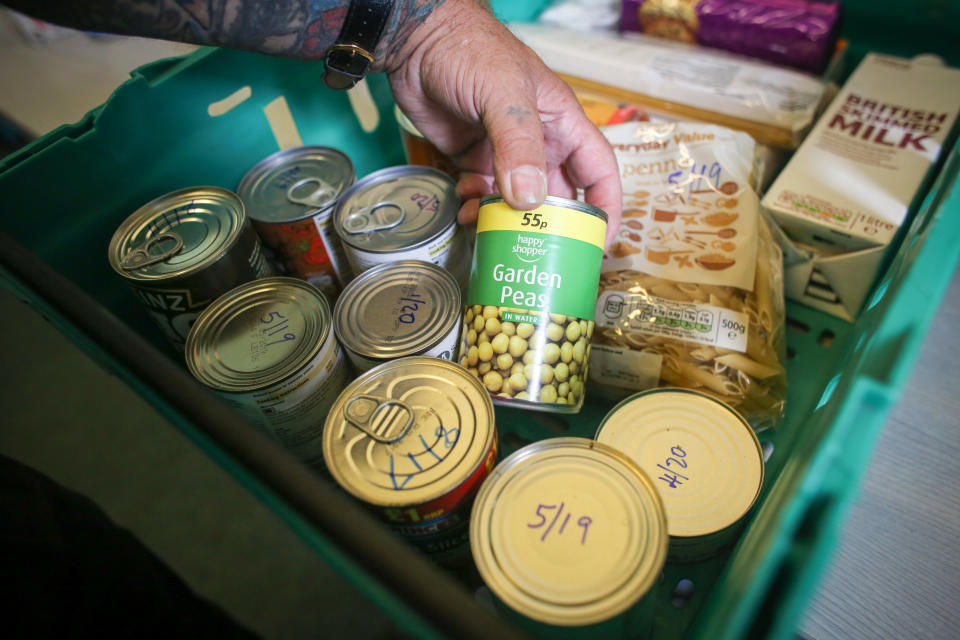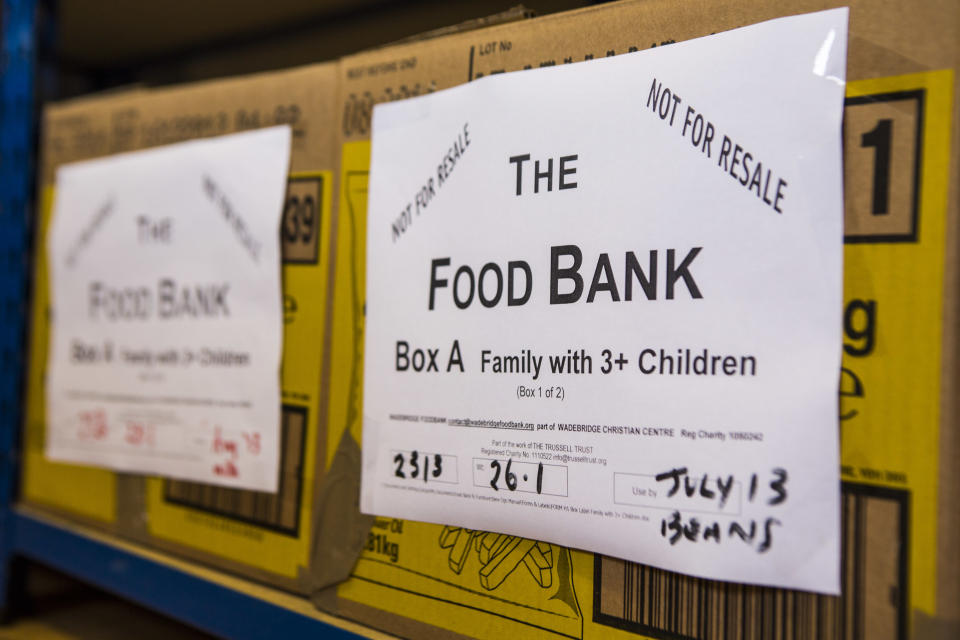Number of children using food banks has doubled since coronavirus

The coronavirus pandemic has seen a sharp rise in the use of food banks by families and children impacted by lockdown measures, MPs have been told.
The UK lockdown, which came into force on 23 March, left many Brits out of work and many low income households struggling to make ends meet.
Ministers were told this week how COVID-19 has had an “instantaneous and profound” impact on families, with the number of children depending on the facilities increasing by 122%, compared to the same period last year.
Emma Revie, chief executive of the Trussell Trust charity, told the Environment, Food and Rural Affairs Committee there was a “disproportionately” high number of young people depending on food banks in the UK.

Ms Revie said: “The impact of the pandemic was instantaneous and profound. We analysed the last two weeks of March, compared to the same time last year and we identified that there was an 81% increase in demand and quite alarmingly a 122% increase in the number of children receiving food.
“What this told us was the number of families with children that were coming to us had doubled from its normal levels, so we’re definitely seeing a disproportionately high number of children.
Latest coronavirus news, updates and advice
Live: Follow all the latest updates from the UK and around the world
Fact-checker: The number of COVID-19 cases in your local area
6 charts and maps that explain how coronavirus is spreading
“The primary reason why people were coming was because of an insufficiency of funds to buy essentials, one of those being food.”
Ms Revie added that children not attending school was “part of the issue”, but not the whole reason behind the spike in demand for food banks.
Meanwhile, The Trussell Trust said its network had seen its busiest-ever period, with 81% more emergency food parcels being given out in the last two weeks of March.
The charity said demand for emergency food parcels had been soaring over the past five years, with research showing that households referred to food banks are, on average, left with just £50 per week after housing costs.
Labour MP for Croydon Central, Sarah Jones called for a reform to benefit payments amid the rise in the use of foodbanks and soup kitchens.

Jones said there has been a “massive increase in demand” in her area of south London, adding new claimants should receive a grant rather than a loan ahead of their first payment under Universal Credit (UC).
Work and pensions minister Will Quince said the department does not have the “capacity” to make such structural changes, arguing staff are focused on helping claimants.
On 2 April, the DWP reported 950,000 successful applications for the payments in the two weeks from 16 March, when the government advised people to start working from home.
The huge increase was up from around 100,000 applications in a normal two-week period, while around a quarter of claims included an application for an advance payment.

 Yahoo News
Yahoo News 

